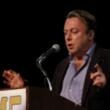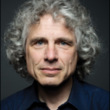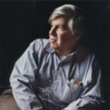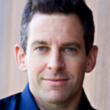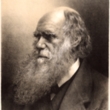An appetite for wonder: the making of a scientist
Description
In his first memoir, Richard Dawkins shares a rare view into his early life, his intellectual awakening at Oxford, and his path to writing The Selfish Gene. He paints a vivid picture of his idyllic childhood in colonial Africa, and later at boarding school, where he began his career as a skeptic.
Arriving at Oxford in 1959, Dawkins began to study zoology and was introduced to some of the university's legendary mentors as well as its tutorial system. It's to this unique educational system that Dawkins credits his awakening. In 1973, provoked by the dominance of group selection theory and inspired by the work of William Hamilton, Robert Trivers, and John Maynard Smith, he began to write a book he called, jokingly, "my bestseller." It was, of course, The Selfish Gene.
This is an intimate memoir of the childhood and intellectual development of the evolutionary biologist and world-famous atheist and how he came to write what is widely held to be one of the most important books of the twentieth century.
More Details
9780062283559
Also in this Series
Published Reviews
Choice Review
Richard Dawkins (Oxford Univ., UK) is a brilliant, provocative thinker, scholar, and prolific writer. This memoir encompasses the first half of his life; a second memoir is planned for the remainder. Dawkins, a product of the British cultural world of the mid-20th century, provides information and insights into his genealogy and comfortable childhood. He describes in detail and with occasional humor a life of extensive travel and learning privileges. In his intellectual journey, he was fortunate to have several encouraging mentors at Oxford and Berkeley, California, including a Nobel laureate. Via innovative tutorial methodologies, they nurtured his skepticism, curiosity, and inquisitiveness. Their involvement created opportunities for him to become an independent learner. Dawkins became a unique researcher who created new paradigms about genes and evolution, and their interconnectedness (see The Selfish Gene, CH, May'77). He is especially respectful of and praises Charles Darwin's discoveries and biological interpretations. The clarity and analysis of his comprehensive perspectives and writing helped to dispel prevalent myths, though his announced atheism created some controversy (see The God Delusion, CH, May'07, 44-4994). Overall, Dawkins has written an insightful narrative, but readers will not gain a deeper understanding of the genesis of his intellectual approaches or creative accomplishments. Summing Up: Recommended. All academic students and general readers. J. N. Muzio emeritus, CUNY Kingsborough Community College
Booklist Review
Dawkins evolutionary biologist and controversial atheist shows us how he became a scientist. Born in Nairobi, he studied zoology at Oxford and taught at Berkeley before returning to Oxford as a professor. The publication of The Selfish Gene in 1976 sparked a revolution in biology and made Dawkins a celebrity well beyond his field of study. The autobiography itself offers a revealing look at a man, rather than an established celebrity, searching for the course his life will take; but the book is much more than that, thanks to the wealth of fascinating asides. Even a simple thing like discussing his grandparents becomes, in Dawkins' hands, a launching pad for a discussion of linguistics and evolutionary history (and don't get him started on Dr. Dolittle). As he moves through his life, Dawkins glides along for a while and then, suddenly, stops to take a really good look at an idea that appeals to him (such as, for example, how we recognize an object as solid, as opposed to markings on a two-dimensional surface). More than a fascinating life story, the book delivers a revealing glimpse of a mind in action.--Pitt, David Copyright 2010 Booklist
Publisher's Weekly Review
As anyone familiar with his work might expect, Dawkins's memoir is well-written, captivating, and filled with fascinating anecdotes. Beginning just prior to his birth in colonial Kenya during WWII and concluding with the groundbreaking publication of The Selfish Gene in 1976, the book illuminates the underpinnings of Dawkins's intellectual life, a la Tony Judt's The Memory Chalet. He relates numerous tales from his academic life-from boarding school in Kenya, to England for prep school at Chafyn Grove, public school at Oundle, and university at Balliol College at Oxford-but he rarely scratches the veneer of his experiences. (To be fair, he admits he is "not a good observer," though he tries "eagerly"). Interestingly, he bemoans his tacit participation in minor acts of bullying during these school days, though he refrains from commenting on contemporary accusations of intellectual asperity. He often hints at themes that would preoccupy him later in life, including his firm atheism and opinions regarding pedagogy, but while he whets readers' appetites, he rarely sates them. Finally, Dawkins interweaves an informative gloss on natural selection with an account of the making of The Selfish Gene, whereupon he clears the table to make room for a promised second course. Hopefully that one will be more satisfying. Photos. Agent: John Brockman, Brockman Inc. (Oct.) (c) Copyright PWxyz, LLC. All rights reserved.
Library Journal Review
In the first volume of a projected two-volume memoir, evolutionary biologist and ethologist Dawkins (fellow, emeritus, New College, Univ. of Oxford; The God Delusion) looks back on his life from childhood through the publication of his first and most famous book, The Selfish Gene, in 1976. It's a mixture of lighthearted anecdote (when Richard was a young student, his French teacher wrote on his report card that he had "a wonderful facility in escaping work"), straightforward narrative, and the author's opinions, of which Dawkins has never been short. On almost any issue-his sister's comfort blanket, the fatuity of prayer, the fraudulence of the Book of Mormon-Dawkins's skeptical mind works away, laying out rationales for his judgments. Ultimately, this is a self-portrait of an intensely alive man whose radical positions are the logical outgrowth of his skeptical, science-based approach to almost everything. Dawkins does not paint himself as perfect, but he doesn't let himself become mired in self-doubt-the book has a peppy, positive tone to it. His memoir is more about science than atheism, although both topics crop up. -VERDICT Enjoyable from start to finish, this exceptionally accessible book will appeal to science lovers, lovers of autobiographies-and, of course, all of Dawkins's fans, atheists and theists alike. [Dawkins was a member of LJ's Day of Dialog panel, "The Art of Science Writing" (ow.ly/mch8D).-Ed.]-David Keymer, Modesto, CA (c) Copyright 2013. Library Journals LLC, a wholly owned subsidiary of Media Source, Inc. No redistribution permitted.
Kirkus Book Review
Dawkins (b. 1941), having written best-sellers on his favorite subjects including evolutionary biology (The Selfish Gene, 1976) and atheism (The God Delusion, 2006), turns to the traditional autobiography. Born in Nairobi, Kenya, the author grew up in a happy family, his father an agricultural specialist in the British Colonial Service who returned to England in 1949. Dawkins delivers an amusing and thoughtful if often unflattering account of himself during his education at upper-class British prep schools. "I cannot deny a measure of unearned privilege when I compare my childhood, boyhood and youth to others less fortunate," he writes. "I do not apologize for that privilege any more than a man should apologize for his genes or his face, but I am very conscious of it." Entirely submissive to peer pressure, he enjoyed bullying unpopular classmates and pretended to know less than he did because academic achievement was scorned. Despite this unprepossessing background, he was admitted to Balliol, the most prestigious Oxford college, where he studied animal behavior under the inspiring Nobel laureate Niko Tinbergen. After a decade of intense research and deliberation, Dawkins narrowed his focus to the genes that produce this animal behavior, which led to his groundbreaking theory that it is genes, not the organism, that govern evolution. This remains controversial, but it propelled him to a flourishing career as a scientist, educator and media personality, although the media (but not this book) emphasizes his atheism over his scientific accomplishments. After delivering an entertaining account of his not-terribly-arduous youth and progression up the ladder of scientific academia, Dawkins ends with the publication of The Selfish Gene, but most readers will eagerly anticipate a concluding volume.]] Copyright Kirkus Reviews, used with permission.



























